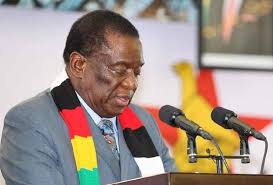
Zimbabwe plans to halt tariffs on imports from the United States.
Zimbabwe's President, Emmerson Mnangagwa, announced on Saturday his decision to suspend all tariffs on goods imported from the United States. This move comes shortly after US President Donald Trump imposed an 18 percent tariff on imports from the southern African nation.
Zimbabwe's primary trading partners include the United Arab Emirates, South Africa, and China, with its limited exports to the US primarily consisting of tobacco and sugar.
“I will instruct the Zimbabwean government to implement a suspension of all tariffs on goods from the United States,” Mnangagwa stated in a post on X.
He explained that this decision aims to enhance the influx of American imports into the Zimbabwean market while also fostering the growth of Zimbabwean exports to the United States.
According to US government data, the total trade in goods between the two nations reached $111.6 million in 2024.
The relationship between Zimbabwe and the US has been characterized by prolonged pressure campaigns against former leader Robert Mugabe since the early 2000s.
Harare has frequently attributed the severe economic crisis, which has persisted for over two decades, to US sanctions and has sought to strengthen economic relations with the UAE and China instead of the West.
Last year, Washington lifted the previous sanctions program but imposed targeted sanctions on Mnangagwa and other senior officials in Zimbabwe's government and the ruling ZANU-PF party, citing human rights violations and corruption.
At that time, Mnangagwa condemned the sanctions imposed by then-President Joe Biden as “illegal and unjustified.”
Prominent journalist and activist Hopewell Chin’ono remarked that the announcement regarding the suspension of tariffs on US goods appeared to be a “knee-jerk reaction,” implying it might be an attempt by Mnangagwa to have the sanctions lifted.
Chin’ono expressed on X that unilateral actions are at odds with the tenets of regional economic collaboration, particularly concerning the Southern African Development Community (SADC), and may potentially marginalize the interests of Zimbabwe's key trading partners.
He further questioned whether Zimbabwe exports a sufficient volume to the United States to warrant efforts to placate the Trump administration in this manner.





